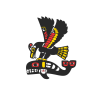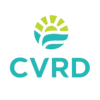Opinion Column by MP Alistair McGregor.
Published in the Cowichan Lake Gazette, Black Press Media 
On August 14th, I was graciously invited to attend the Land Keepers Society’s community information meeting at the Cowichan Hub.
This meeting was about the Cowichan Estuary Restoration Project, which aims to restore approximately 70 hectares of previously used agricultural land to marsh habitat and re-establish natural estuarine processes.
I appreciated having the opportunity to listen to both the concerns that the society presented and the questions that were posed by members of the audience.
As the federal NDP’s Agriculture and Agri-food Critic since 2018, I know that supporting our farmers and critically thinking about our region’s food security are both vitally important.
With a prolonged drought and a scarcity of feed, many of the farmers in our region are feeling intense pressure, and they need our support. Our community’s resiliency depends on supporting our local agriculture.
At the same time, we know that our wild salmon populations are also under intense pressure and that much of this has come from habitat destruction, especially in their natural spawning areas.
Coupled with the growing impacts of climate change, these pressures have resulted in half of Pacific salmon populations being in some state of decline.
According to the Pacific Salmon Foundation, to help reverse this decline, “major investment is needed to restore estuaries and critical kelp and eelgrass habitats.”
So, are we on an inevitable collision course with these two important issues?
Do we have no other option other than to pit the interests of agriculture against the interests of our precious wild salmon populations? Is there a way to reconcile the passion of these two communities for their respective issues?
I believe the way forward is to recognize that the overarching threat to both agriculture and wild salmon is climate change.
Farmers across Canada have told me that they are on the front lines of climate change.
This is why we are seeing extended drought periods, a scarcity of water resources, and the resulting shortage in available feed.
It’s also why we are seeing warmer water temperatures in our ocean and river systems and a decline in the flows needed to sustain a healthy watershed – these are having a huge negative impact on salmon, which are a keystone species and play an essential role in the health and function of multiple ecosystems.
If we want to help our farmers, let’s equip them with policies and support that promote better soil management and climate adaptation, but also help reduce the need for costly inputs, such as pesticides and fertilizer, which have caused an explosion in farm debt.
If we want to help our precious salmon populations, let’s commit to that important habitat restoration for a species that so many people rely on for their sustenance.
Supporting our farmers and our salmon are not mutually exclusive and can work in harmony with one another.
Let’s work together as a community to realize both goals.
Alistair MacGregor is the MP for Cowichan-Malahat-Langford and the NDP’s Agriculture and Agri-food Critic

 Email
Email



